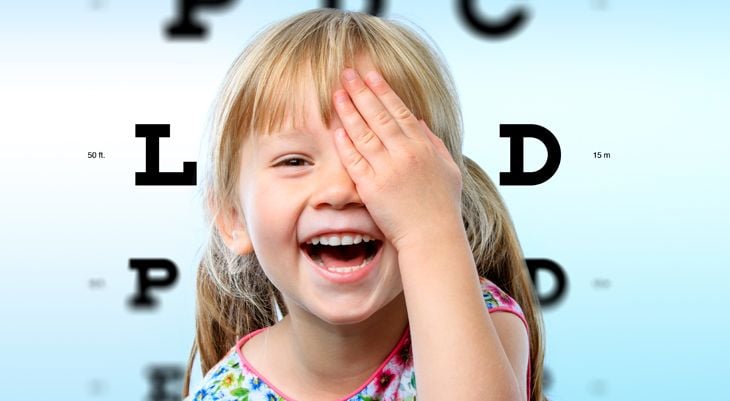Ophthalmology addresses the physiology, anatomy and diseases of the eyes. Pediatric ophthalmology focuses on the eyes of children. Pediatric ophthalmologists examine children’s eyes to see if they need corrective lenses or other treatments to improve their vision. Training for Pediatric Ophthalmologists Pediatric
Read more

Most schools provide vision screening programs to identify children who have problems with eyesight. Although these provide a great opportunity to notice common vision problems, many vision issues go undetected in school exams. A comprehensive eye exam from an optometrist is needed to accurately diagnose a range of common pediatric vision issues.
Treatment of Pediatric Vision Issues
Although glasses may help with these pediatric vision issues, vision therapy is the most common course of treatment. Vision therapy actually retrains the eyes to work together, focus appropriately, and track objects. This may include in-office therapy with special instruments as well as personalized at-home exercises to practice vision skills. Successful vision therapy changes the eyes' functioning to facilitate clear vision.
-
Pediatric Ophthalmology
Category: Pediatric Vision
-
Wandering Eye
Category: Pediatric Vision
A wandering eye is a type of eye condition known as strabismus or tropia, and it may be caused by damage to the retina or muscles that control the eye, stroke or brain injury, or an uncorrected refractive error like farsightedness. With a wandering eye, one eye deviates or wanders in a different direction
Read more -
Crossed Eyes
Category: Pediatric Vision
Crossed eyes, also known as strabismus, refer to a condition in which both eyes do not look at the same place at the same time. Often times they both turn in, but may also turn out. What Causes Crossed Eyes? The six muscles attached to each eye, which control how it moves, receive signals from the brain.
Read more -
Autism
Category: Pediatric Vision
Symptoms and Problems Caused By Autism Autism is a neurological disorder in which the person has difficulty processing and reacting to information received from their senses. The individual also has trouble communicating and interacting socially. Signs of autism include: Lack of shared social interaction Postponement
Read more